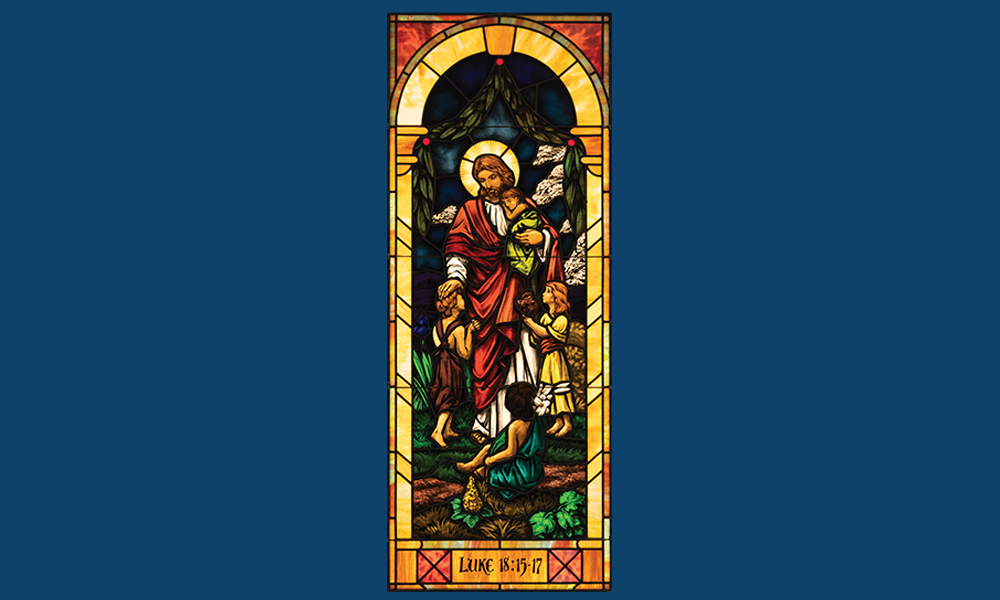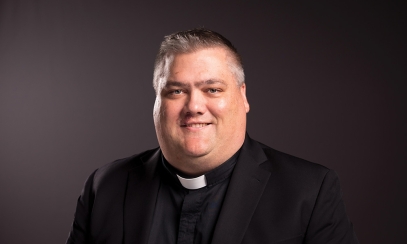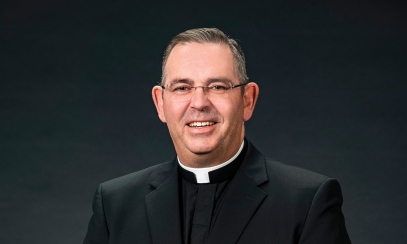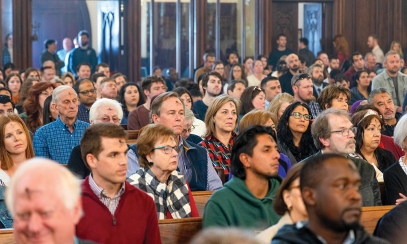
We must continue to prevent abuse and provide healing
Editor: The Office of Ethics and Integrity and Ministry has been helping protect our young people for more than 20 years. Let’s begin with an overview of how the program started.
Bishop Vásquez: The Ethics and Integrity in Ministry program (or EIM as most people know it) is a crucial ministry in our diocese, and I am thankful for the work this program does to protect our children and young people. In 2002, as numerous allegations of sexual abuse by clergy were brought to light in our country, the U.S. bishops came together to establish the Charter for the Protection of Children and Young People. The Charter, which set guidelines for reconciliation, healing, accountability and prevention of future acts of abuse, has been revised several times.
The Charter mandates that each diocese establish a safe environment program for children and young people. Thankfully, the Diocese of Austin, under the leadership of Bishop Gregory Aymond, had already established such a program before the Charter was promulgated in 2002. The mission of our Ethics and Integrity in Ministry program is to protect the people of the Diocese of Austin from abuse and unethical behavior through education, action and reporting, and to listen to and learn from those who have experienced abuse in order to provide healing.
Through the EIM program, we want to make sure the church is a place where children and young people are safe and secure. Parents should feel confident their children will be protected in our parishes and Catholic schools. We want our clergy, staff members, volunteers, parents and even our children to know and recognize the signs of abuse so that we can stop it as quickly as possible. So now, more than 20 years after the initial Charter was established, we continue to educate the faithful, respond quickly to any allegations that arise and help heal the hurt that has been caused by abuse.
Editor: It is the responsibility of all adults to create a safe environment for our young people. How are we teaching adults to properly take on this responsibility?
Bishop Vásquez: The EIM program requires that all clergy (deacons and priests), consecrated religious sisters and brothers, seminarians, employees and adult lay volunteers take a workshop that educates adults on how to become better protectors of children. This program discusses unethical behaviors, particularly sexual abuse of minors. The workshop also goes through the reporting procedures for incidents of abuse or other unethical behavior and the warning signs of abuse. The church expects ethical behavior of all of us who serve in ministry. Our goal is to make sure all children are safe. As a church we take responsibility for one another and truly honor the dignity of every person.
The more people in our diocese who are trained to spot and report abuse and inappropriate behavior, the safer our parishes, school and communities will be. To learn more about the Diocese of Austin’s EIM policies, visit austindiocese.org/eim.
Editor: How do we empower our children to advocate for themselves and speak up when they experience abuse?
Bishop Vásquez: Through the Empowering God’s Children program, which is part of the EIM program, our children are learning about boundaries and appropriate behaviors. We want to help our children to understand what is safe behavior and what is unsafe, inappropriate or questionable behavior. These age-appropriate lessons provide foundational knowledge and tools to understand boundaries and boundary violation, and to help protect themselves if boundary violation occurs. We want to empower our young people to come forward and speak to us if they see or experience something that is inappropriate.
Let me reiterate that it is the primary responsibility of us as adults to keep our children safe. However, we can also teach our children about safety and how to stand up for themselves when a safe adult is not there. The church must be a place where all children are treasured, appreciated and protected.
Editor: Many people have gone through our EIM workshops. How can one trained person affect the knowledge and safety of others?
Bishop Vásquez: The EIM program has served us well in our diocese. We have had thousands go through this program each year. Having the knowledge that these EIM workshops provide is essential for every person who works in ministry. The more people who are trained to spot and report inappropriate behavior and abuse, the safer our community will be for our children and our vulnerable adults.
Through the EIM program, our diocese will continue to make sure every minister is properly vetted with routine background checks and trained to recognize and report abuse. As the bishop, I remain committed to this effort to protect God’s children of all ages, and I expect all who join me in ministry for this diocese to act morally, ethically and with integrity.
When Christ says in Luke’s Gospel, “Let the children come to me and do not prevent them; for the kingdom of God belongs to such as these,” he's talking about the disposition of the heart of one who trusts completely. It is our responsibility as adults to never break the trust of a child and to care for, protect and nurture these beautiful children God has so blessed us with.
Editor: What is your prayer for all those who serve in ministry, particularly with our young people?
Bishop Vásquez: I pray for all victims who have been abused in the church, may they find peace and justice. I pray that as a church we will continue to protect and nurture our children and young people and continue to create safe environments in which all God’s people are valued. May we treasure the gift of every child, and may we help provide healing for anyone who has suffered the evils of sexual abuse. Amen.
Bishop Joe S. Vásquez is the fifth bishop of the Austin Diocese, which is home to more than 700,000 Catholics. For details, visit the diocesan website at austindiocese.org.



